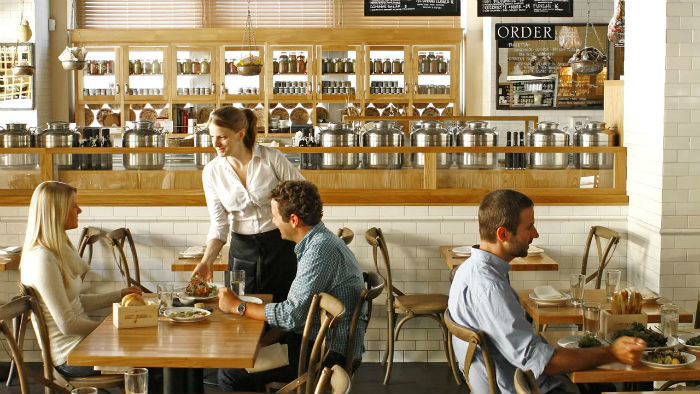Pros and cons: Why do restaurants need table reservation services

In our blog on Geektimes, we already talked about various technologies that help restaurants to develop their business - from automation systems (like Jowi ) to payment applications that increase the size of tips.
Today we will discuss another important direction in the development of restaurant technologies - table reservation services, as well as their pros and cons for institutions.
Introduction
In the US, a significant proportion of restaurant visitors are familiar with online booking services - according to statistics , over 37% of guests have used them at least a couple of times in their lives.
')
The market for similar applications in the United States is also quite developed, an indicator of which, for example, are transactions for the purchase of similar projects by larger IT companies. For example, not so long ago, the Indian restaurant search service Zomato bought NexTable, an American online restaurant table booking platform, for $ 52 million. This was done in order to compete with the Priceline and SeatMe OpenTable services from Yelp.
In Russia and the CIS countries, such tools do not enjoy such serious popularity. But it’s quite interesting to understand why restaurants generally work with reservation services, what it can give them, and what the risks are.
So let's start with why restaurants cooperate with online table reservation services.
Attracting additional audience
The most obvious motivation of restaurant owners, pushing them to cooperate with online booking systems, is the hope that with their help the establishment will be able to attract new visitors. The number of such services is quite large even in the Russian market - we have gettable.ru, stoliki.ru, restotube.ru, etc.
Such competition makes such projects more attentive to the requirements of restaurants - for example, add the ability to view analytical information on reservations. At the same time, such start-ups often have their own marketing budget to attract an audience, which allows restaurants to rely on users who have not heard about this particular restaurant before.
Filling the hall during unpopular hours
The second popular way to use reservation services is to attract an audience to fill an institution during the so-called “quiet” hours, when most of the tables are empty. With the help of small discounts or compliments from the chef, which are offered to users of such services, the restaurant encourages them to make reservations.
In this case, the business practically loses nothing - if the user then does not come, it will not lead to losses, since there are almost no visitors at this time. But if he comes and orders something, the institution will immediately receive additional income.
New Monetization Models
In the United States, the competition in the online booking market contributes to the development of new monetization models, which in the future may migrate to other markets. An example is the so-called “restaurant tickets”, which sell services like Tock .
In short, it works like this - everything looks like buying a ticket for a concert: the user chooses the date and time, the restaurant, and then pays for everything that will lead to the order. As a result, then the client simply comes to the institution and gets what he has already paid for.
Risk reduction
A common problem when booking - the client, “clogs” a table for a specific time, and then just does not come, and the restaurant suffers losses. Some online services help to minimize such problems - for example, when using services like Tock, the client pays in advance, and then the possibility to “resell” the booking is limited, which reduces the likelihood that the guest will not come in the end.
Work with your own audience on the site
In addition to working with third-party booking services, some institutions also follow the path of placing their own modules on the pages of their website. The advantages here are obvious - you don’t need to share information about your customers with anyone, the booking conditions are also completely set by the restaurant’s management.
The disadvantages are also clear - to attract the audience to this form of booking is also needed independently, and no one will help in this matter. There are already quite a few similar modules on the Russian market - we at Jowi also offer our own version (a more detailed list of such tools is presented in a publication in our blog on the site ).
Not so smooth
Despite the fact that in certain cases - especially when it comes to a popular establishment - restaurants may benefit from the use of online booking systems, there are certain risks. For example, quite a large number of such projects are simple speculators, who pre-book the tables "for themselves" and then resell these reservations to Internet users.
According to this scheme, for example, the Killer Rezzy service works - it pre-booked places in restaurants for popular dates, and then resells reservations with a surcharge. In this case, the restaurants do not receive any additional benefits (although it may be convenient for customers, as it gives a chance to get to the right place on the planned holiday). Moreover, the management of the establishment may not even know that the price of the reservation was too high.
That's all, thank you for your attention! Do not forget to subscribe to our blog at Geektimes , and also read our materials at the Restoclub and the project website .
Source: https://habr.com/ru/post/369115/
All Articles